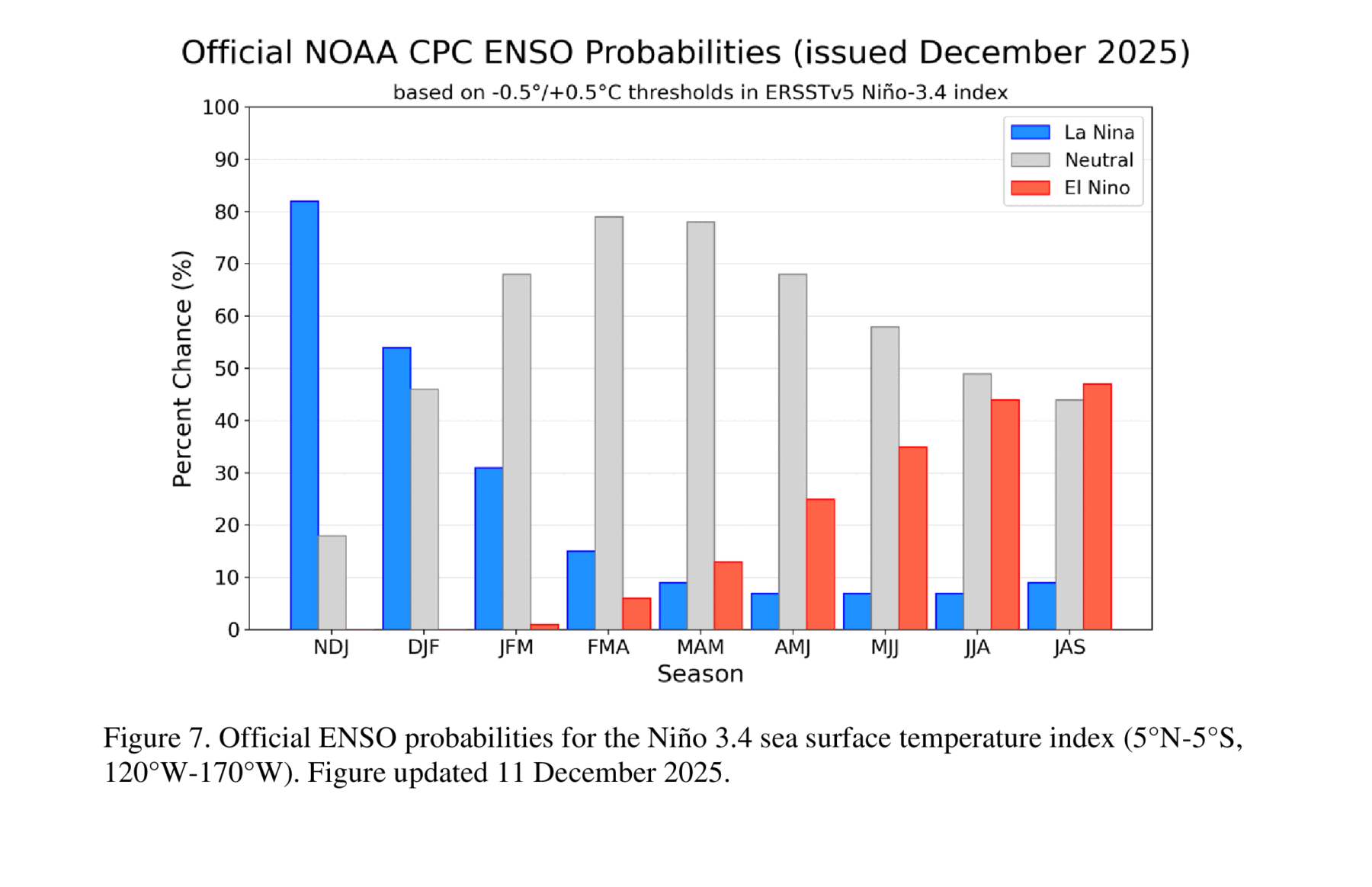Pam Knox
-

The latest 7-day QPF map shows that rain will enter the region on Friday and bring up to an inch of rain in some locations in Alabama and Georgia. Most areas will get some rain but amounts will generally be light. After that system passes, it will be dry until the end of next week,…
Posted in: Climate outlooks -

A quick peek at the end of the year statistics for 2025 shows that most of the Southeast was warmer than usual, although there were a few pockets of cooler than normal temperatures. Precipitation across the region was driest in Florida and southern Georgia and Alabama and also drier than normal in a lot of…
Posted in: Climate summaries -

Those of you who like “top 10” lists might be interested in this video of Greg Carbin’s most memorable weather events of2025, presented on James Spann’s “WeatherBrains” podcast. He has done this for a number of years. You can see the podcast at https://www.youtube.com/watch?v=JdXdZ2teOCY. The presentation starts at about minute 20 and lasts for an…
Posted in: Uncategorized -

The blog will be shutting down for about a week so that we can take the time to relax and celebrate with friends and families. I want you to know how much I appreciate your continued interest in these stories and hope that you find meaning in the season and enjoy whatever weather you get.…
Posted in: About this blog -

NOAA’s Climate Prediction Center issued their latest ENSO discussion earlier this week. In the discussion, they discussed the current weak La Nina that is present in the eastern Pacific Ocean and the recent observations of changing tropical winds that indicate the La Nina may disappear quite soon. The latest prediction is that the transition has…
Posted in: El Nino and La Nina -

This year, Christmas is shaping up to be one of the warmest on record across a large part of the United States, although here in the Southeast we may miss setting a new record by a few degrees. Still, I am planning on raking my yard on Christmas Eve in shorts and a T-shirt this…
-

Desertification in Mongolia is causing major problems with dust in China’s northern capital, Beijing. The Chinese attribute the degradation in Mongolia’s lands to overuse of herding and other agriculture and mining along with a climate that is getting warmer and drier. But the demand for what Mongolia produces by China is encouraging this overuse of…